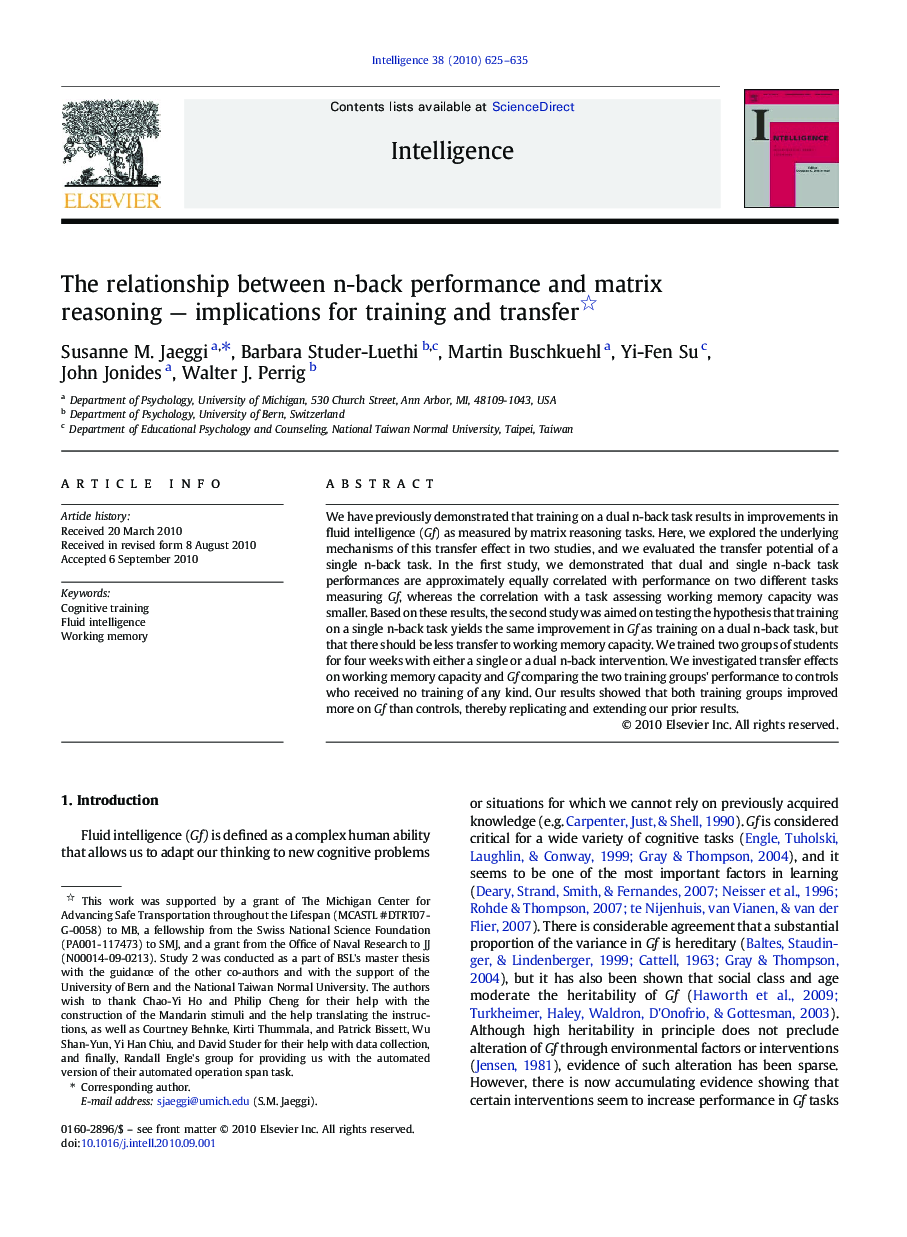| Article ID | Journal | Published Year | Pages | File Type |
|---|---|---|---|---|
| 929349 | Intelligence | 2010 | 11 Pages |
We have previously demonstrated that training on a dual n-back task results in improvements in fluid intelligence (Gf) as measured by matrix reasoning tasks. Here, we explored the underlying mechanisms of this transfer effect in two studies, and we evaluated the transfer potential of a single n-back task. In the first study, we demonstrated that dual and single n-back task performances are approximately equally correlated with performance on two different tasks measuring Gf, whereas the correlation with a task assessing working memory capacity was smaller. Based on these results, the second study was aimed on testing the hypothesis that training on a single n-back task yields the same improvement in Gf as training on a dual n-back task, but that there should be less transfer to working memory capacity. We trained two groups of students for four weeks with either a single or a dual n-back intervention. We investigated transfer effects on working memory capacity and Gf comparing the two training groups' performance to controls who received no training of any kind. Our results showed that both training groups improved more on Gf than controls, thereby replicating and extending our prior results.
